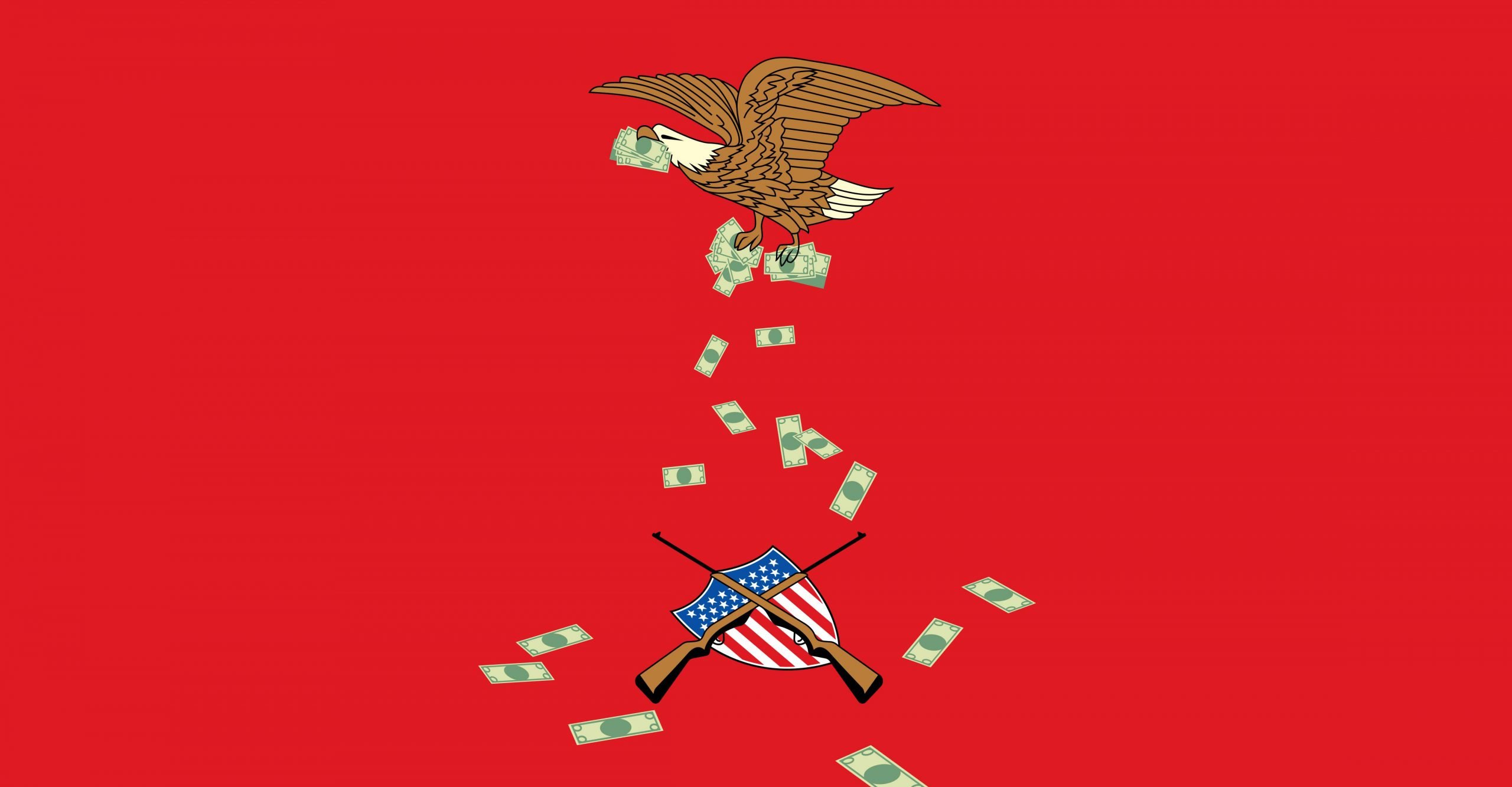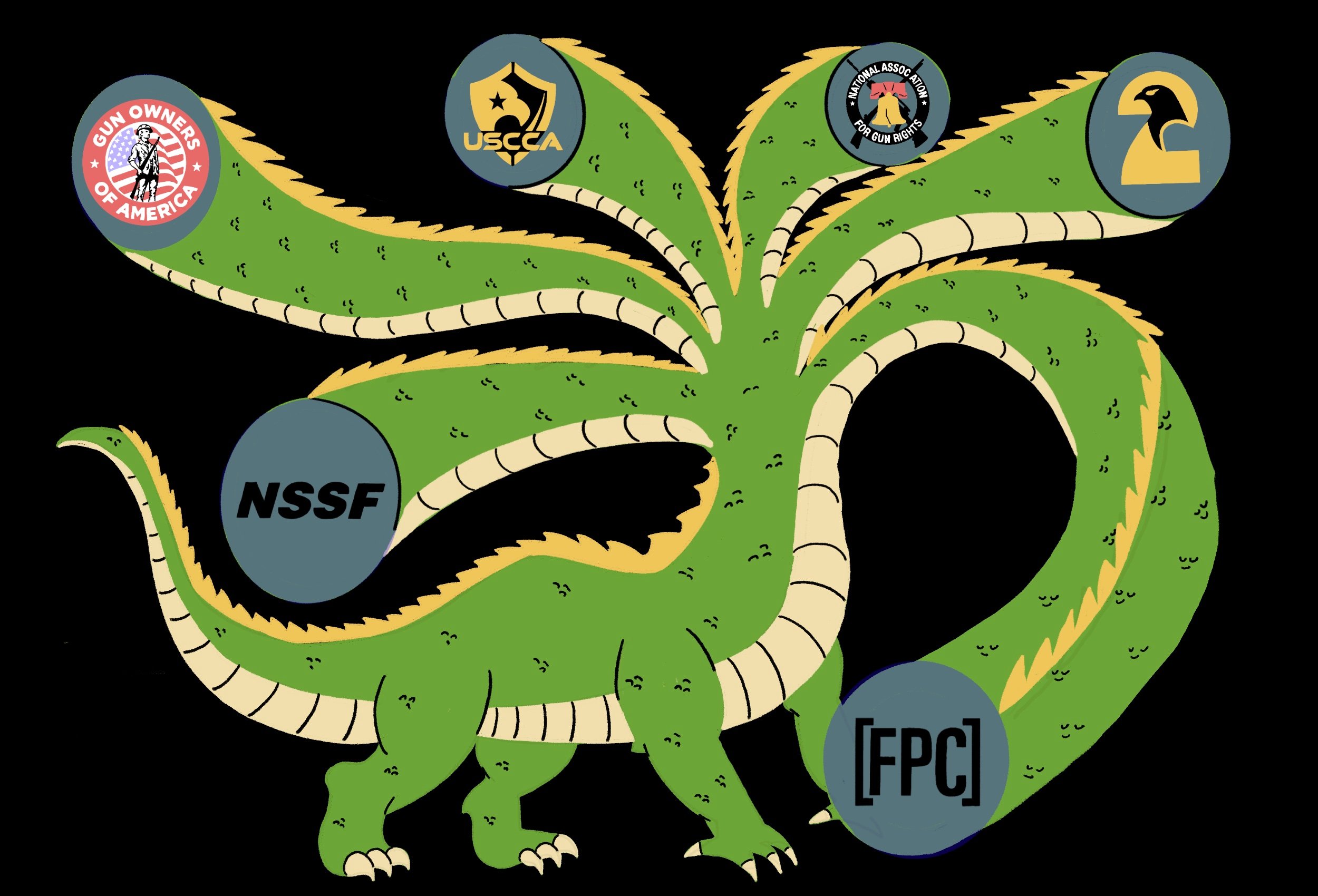In July of 2018, as the National Rifle Association was in the throes of a financial crisis, a half-dozen of the organization’s accountants produced a document detailing what they believed to be the most egregious issues that needed addressing by its audit committee — a small group of NRA board members tasked with conducting fiscal oversight.
The accountants’ one-and-a-half-page memo, titled “List of Top Concerns for the Audit Committee,” details a range of questionable transactions and business arrangements involving several top NRA vendors and executives. It offers new details on the financial mismanagement occurring inside the organization that was laid out in an earlier, handwritten memo, dated July 12 and compiled by Emily Cummins, who was then the NRA’s managing director of tax and risk management.
Last month, The Trace and The New Yorker reported on the July 12 memo’s damaging contents, along with a broad array of other revelations culled from public and internal records. Since then, Letitia James, the attorney general of New York, where the NRA is chartered, has opened an investigation into the organization’s tax-exempt status.
As the depths of the gun group’s fiscal problems have become public, its leadership has attempted to blame Democratic politicians and overzealous regulators for throwing it into a dire financial state. Last month, the NRA also blamed Ackerman McQueen, the public relations firm that, for almost four decades, has meticulously crafted the organization’s identity and placed the NRA at the vanguard of the culture wars. It filed a lawsuit accusing Ackerman — historically the gun group’s most expensive vendor — of engaging in deceptive business practices (Ackerman has disputed the lawsuit’s allegations, contending it was transparent in providing the NRA with “every single piece of information” that the organization requested).
The NRA’s relationship with Ackerman seems to be the most prominent example of an organizational culture that is marked by secrecy, self-dealing, and greed, and has cost the NRA hundreds of millions of dollars through bloated payments, lavish deals, and opaque financial arrangements. The memo to the audit committee appears to show that the NRA’s troubles stretch beyond its dealings with Ackerman. It suggests new examples of unexplained spending, weak oversight, mismanagement, and conflicts of interest among members of the NRA’s senior management.
“As previously stated, the NRA has serious concerns about the accuracy of this reporting and The New Yorker’s sources,” William A. Brewer III, a lawyer who represents the NRA, wrote. “Of course, we cannot comment on privileged communications or personnel matters — especially in response to out-of-context assertions.” He added, “This ‘report’ is obsolete and misleading. The NRA has a conflict-of-interest policy, and the audit committee reviews all related-party transactions, when appropriate.” The organization, he said, “strives to comply with all applicable regulations.”
One of the senior NRA executives mentioned in the audit-committee memo is Woody Phillips, who served as the organization’s treasurer and chief financial officer for 26 years before retiring in 2018. The document states, without explanation, that the NRA had made “payments” to Phillips’s “significant other.” Brewer challenged the accuracy of the assertion. “Payments were not made to any ‘significant other’ of the NRA’s former CFO,” Brewer wrote. “The NRA hired an IT consulting firm with links to a social friend of Mr. Phillips. That firm was interviewed and vetted by the NRA’s IT department, and its engagement was reviewed and approved by the audit committee.”
The accountants described invoices submitted by several vendors and paid by the NRA as “vague and deceptive.” One questionable arrangement involved Associated Television International, a television production company. From 1998 to 2014, ATI produced a crime re-enactment show called “Crime Strike,” which featured the NRA’s executive vice president and CEO, Wayne LaPierre. According to the accountants, the NRA paid ATI “$1.8M for rental of a house” that belongs to David McKenzie, ATI’s president. The accountants do not say who rented the home, why the NRA covered the rental at such a massive cost, nor what, if anything, was “deceptive” about the bill.
Michael Donaldson, ATI’s outside counsel, confirmed that the company sent the NRA “seven invoices” concerning the house that added up to “almost $1.8 million.” He went on, “The invoices in question were all for refurbishing episodes after completion of the original episodes of ‘Crime Strike,’” adding, “the invoiced amounts include not only the house but also various production-related items such as lights, props, and some crew.” Donaldson told me that ATI has “stopped rendering services for the NRA for some time.” “In fact,” he said, “they are now focussed on working on an independent documentary called ‘Inside the NRA.’”
Brewer, the lawyer representing the NRA, said that the audit committee is “addressing those issues,” and that the NRA’s “long relationship with ATI” has “resulted in significant benefits for the Association and its members.” Brewer added, “As is true of all such relationships, it is a subject of ongoing review by the NRA.”
Other payments questioned in the memo involved Membership Marketing Partners, a fundraising contractor. In 2017, the NRA paid the firm nearly $12 million. The Trace and The New Yorker previously reported that, in the same year, the NRA paid almost $800,000 for “fundraising counsel” to a firm called Allegiance Creative Group. According to North Carolina state filings, at least 10 of Allegiance’s 15 employees and executives also work at Membership Marketing Partners; one such executive is Gurney Sloan, who serves as the president and CEO of both companies. According to the accounting memo, “MMP bills violate contract stipulations,” though it does not specify which stipulations.
In addition, the memo drew attention to “senior management override of internal controls,” that led to violations of “accounts payable procedures” and “HR policy,” including “hiring of staff without HR knowledge.” It names four executives who, at the time, were receiving “reimbursement of expenses relating to apartments and living expenses beyond HR Policy Manual stipulations and on a permanent basis.” The NRA’s accountants added that there was “no contract to support the reimbursement request,” which the four individuals continued to claim as a “relocation expense.” The executives named include Doug Hamlin, the NRA’s executive director of publications; Eric Frohardt, the director of education and training; Joe DeBergalis, the executive director of general operations; and Josh Powell, LaPierre’s chief of staff.
Andrew Arulanandam, the NRA’s managing director of public affairs, said that the organization “has, at times, made such accommodations for employees who travel extensively for their jobs.” He added, “The practice of providing such accommodations is approved by NRA leadership and is not uncommon for an organization the size of the NRA.”
James Fishman, an expert on nonprofit law and a co-author of “New York Nonprofit Law and Practice: With Tax Analysis,” said that the housing payments, along with the other arrangements described in the memo, suggested “that senior people at the NRA are using the organization for their own private benefit.” He said: “That is against the law. The nonprofit is supposed to serve a public purpose, not a private purpose.”
The NRA hired Powell in 2016, after he ran two high-end clothing catalogues that catered to wealthy outdoorsmen. Businesses that had worked with Powell sued him on at least 20 occasions, alleging unpaid bills totaling more than $400,000. Until this past December, Powell had served as the NRA’s executive director of general operations, for roughly two years. The organization’s 2017 tax filings revealed that Powell had racked up more than $100,000 in personal expenses — including a housing allowance — paid by the NRA. In December, 2018, Powell, who is not an attorney, was promoted to “senior strategist” to the NRA legal team that sued Governor Andrew Cuomo and the New York Department of Finance that spring.
The memo to the audit committee cites Powell’s multiple conflicts of interest, including NRA payments to his father, a photographer, and the fact that, in late 2017, his wife, Colleen Gallagher, was hired by one of the NRA’s top fundraising vendors, McKenna & Associates.
Arulanandam, the NRA spokesperson, said that the audit committee was “aware of the relationship and approved the consulting arrangement with McKenna.” The company, he said, “has for years been a trusted advisor to the association in the area of business consulting, development, and strategic planning.” Toby Merchant, a lawyer representing McKenna, told me that Gallagher was “actively recruited by McKenna” and that she was “hired on the merits of her skills and talents.”
Contact Us
Learn how to contact our reporters securely.
The memo alleges that McKenna provided “vague project names,” failed to “attach support” for invoices, and operated with “no contract for current work.” Brewer, the NRA lawyer, said there was nothing unusual about shrouding work in secrecy: “As is customary in finance, consulting, and other industries, NRA vendors have occasionally used code names for transactions or projects. This does not mean the NRA lacked knowledge regarding the services rendered. For example, work performed by McKenna & Associates was reviewed, vetted, and approved.”
Merchant, McKenna’s attorney, said that “Senior leadership and the audit committee were well aware of the services and deliverables being provided by McKenna & Associates.” He added that the NRA’s “accounting department” would “not have had access to the confidential details of the McKenna & Associates engagement.” He said that McKenna’s work for the NRA was neither ‘vague’ nor ‘unsupported.’” Any assertion to the contrary, he asserted, “is demonstrably false.”
Though it’s not mentioned in the memo, around the time that Powell became LaPierre’s chief of staff, the organization brought in Dan Winders, the chief operating officer of one of Powell’s catalogues. Winders told me in a text message that the NRA had given him a “one-day consultation with their promotional-products team to evaluate their business processes and inventory management.”
The NRA’s accountants completed their memo in mid-July. Around this period, the NRA’s new CFO, Craig Spray, had to temporarily step away from his role at the organization to deal with a health matter. Someone would need to take his place as the organization’s chief manager of financial activities. According to an internal NRA communication, in July, 2018, Powell was appointed acting CFO for about three weeks, placing him in charge of the accountants who documented his conflicts of interest.
“This is norm-breaking across the lines — deeply problematic and definitely not best practices,” Philip Hackney, who worked for five years as an attorney in the Internal Revenue Service’s chief counsel’s office, said. “If all of these allegations are true, you’re talking about nonprofit governance gone bad, with choices resulting in possible theft, which is not in anyone’s interest.”



